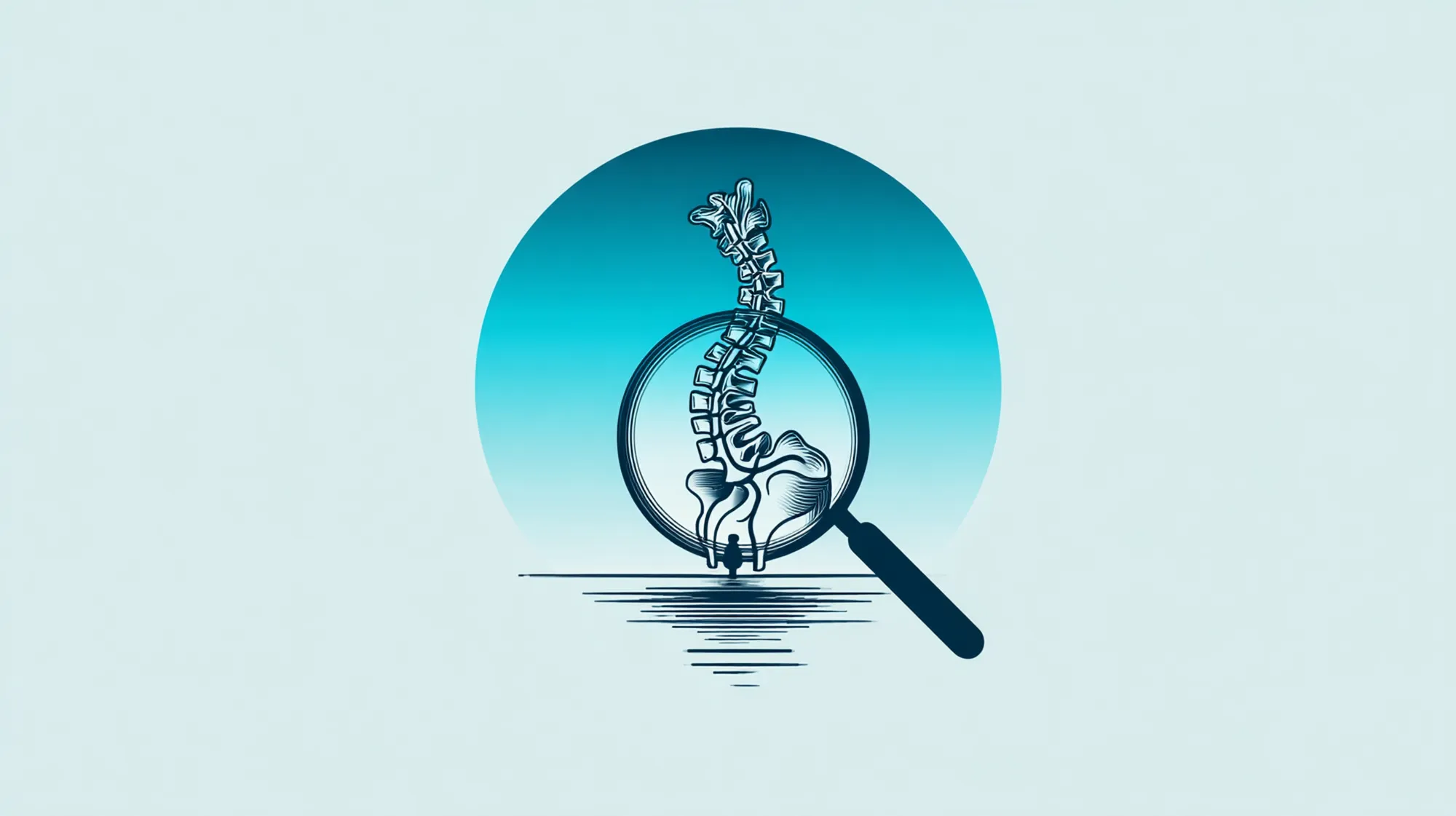As Chillicothe and our North Missouri communities gear up for festive parades and family gatherings, many of us feel our stress levels rising. The holidays, while joyful, can also bring hectic schedules, financial pressures, and extra responsibilities. In fact, 89% of Americans feel stressed during the holiday season[1]. That stress often shows up in our bodies: tight shoulders, tension headaches, an aching neck, or sleepless nights are all common complaints. Stress triggers the body’s “fight or flight” response, which causes muscles to tense up and can lead to headaches and disturbed sleep[2]. The good news is that with some mindful self-care—and a little help from chiropractic care—you can keep the season bright and your stress in check.

How Stress Affects Your Body During the Holidays
Holiday stress isn’t just in your head – it’s very much a physical experience. When you’re under pressure, your body releases stress hormones (like cortisol and adrenaline) that put you on high alert. In small doses this is okay, but chronic holiday stress can leave you feeling rundown. Muscles naturally tighten up when you’re stressed, especially in your neck, shoulders, and back[2]. This is why you might feel neck stiffness or get tension headaches after a long day of frantic gift-shopping or cooking for a big family dinner. Elevated stress hormones also interfere with restful sleep, so you might find it harder to fall asleep or stay asleep when you’re anxious about your to-do list[2]. Plus, stress can even weaken your immune system, making it easier to catch a winter cold[2] – not exactly the gift you want this season!
It’s important to recognize these physical signs as early warning signals. That tight neck or persistent headache around December isn’t just a coincidence – it’s your body’s way of saying the holiday hustle is taking a toll. By listening to your body and managing stress proactively, you can prevent these aches and pains from stealing your holiday cheer.

How Chiropractic Care Can Help You Stress Less
We see it every winter at our clinic: patients come in with knotted shoulders and nagging headaches as holiday stress ramps up. Thankfully, chiropractic adjustments can be a powerful stress relief tool. Chiropractic care doesn’t just ease back or neck pain – it helps your whole nervous system function better. When we gently realign your spine, it signals your body to switch from “fight-or-flight” mode into a calmer “rest-and-digest” state[3]. In simpler terms, an adjustment nudges your nervous system out of high stress gear and into a more relaxed mode. Patients often feel a wave of calm and looseness as tense muscles release following an adjustment (you may even notice you’re breathing easier!).
Research backs this up: One study found people had measurable signs of relaxation after a spinal adjustment[3]. Other research noted a drop in cortisol, the body’s primary stress hormone, following chiropractic care[4]. Adjustments may also boost feel-good hormones like endorphins and serotonin[4], which can lift your mood naturally. By keeping your spine and nervous system balanced, chiropractic treatments essentially help reset your body’s stress response. Many patients tell us they sleep better and feel more at ease after their adjustments – fewer headaches, less muscle tightness, and that overall “lightness” you feel when tension melts away.
If you’re feeling the holiday strain, don’t underestimate the benefit of a quick chiropractic “tune-up.” At The Well-House Chiropractic, we can loosen those tight muscles and get your body back in alignment, so stress doesn’t hit you as hard. It’s a bit like hitting the reset button for your body and mind. You’ll walk out of an adjustment session breathing a little deeper, with that built-up pressure in your neck or back relieved.

Self-Care Tips for a Stress-Less Holiday Season
Aside from regular adjustments, there’s a lot you can do on your own to manage stress. Here are some holiday stress-busting tips we recommend to our patients (and practice ourselves!):
- Take breathing breaks: When you feel overwhelmed, pause and do a simple deep-breathing exercise. Inhale slowly for a count of 4, hold for a couple seconds, then exhale for 4 (repeat this for a minute or two). This kind of mindful deep breathing activates your relaxation response and lowers tension[5]. It’s like a reset button for your nervous system. You can do it anywhere – in the car before walking into a busy store, or in your office when work is hectic.
- Stretch it out and move: Physical activity is a natural stress reducer. If you’ve been sitting wrapping gifts or working at a desk all day, take a 2-minute stretch break. Roll your shoulders, gently stretch your neck side to side, or do a few simple yoga moves. A short walk outside can also work wonders to clear your head. Moving your body helps release muscle tension and pumps up endorphins (those feel-good brain chemicals), so you’ll come back to your tasks feeling a bit looser and re-energized.
- Keep a healthy routine: It’s easy to let self-care routines slip during the holidays, but sticking to the basics will help you tremendously. Aim for 7–8 hours of sleep per night and try to maintain a consistent sleep schedule (yes, even if it’s tempting to stay up late wrapping presents). Lack of sleep can make stress and irritability much worse. Also, don’t forget to stay hydrated and eat balanced meals amid the candy canes and eggnog. Enjoy the holiday treats, but moderation is key – too much sugar or caffeine can spike anxiety or disrupt your sleep. Keeping your body well-rested and nourished makes you more resilient to stress.
- Set boundaries and say no when needed: Give yourself permission to not do it all. If your schedule is jam-packed with events, it’s okay to politely decline an invitation or delegate some tasks. The world won’t end if you buy dessert from a bakery instead of baking from scratch, or if you choose a quiet night in over a fourth holiday party. By setting boundaries, you protect your mental health and conserve energy for the things that matter most. Also, make sure to schedule in some “me time.” Whether it’s a relaxing bath, reading a book by the fire, or a short prayer/meditation in the morning, find small moments that are just for you. These little breaks help recharge your batteries and prevent burnout.
- Get a chiropractic tune-up: Consider treating yourself to a chiropractic adjustment amid the holiday hustle. When stress starts to knot up your neck or back, a quick visit to your chiropractor can provide immediate relief. We’ll help loosen those tight muscles and realign your spine, which can instantly reduce your tension levels. Patients often report that after an adjustment they feel calmer and even sleep better that night[6]. It’s a fantastic form of self-care. Think of it as giving yourself the gift of relief – you deserve to feel your best during the holidays! (If massage therapy or yoga is available to you, those are great complementary de-stressing options as well.)
Remember: The holidays are meant to be enjoyed, and taking care of yourself is not selfish – it’s essential. By listening to your body and using the strategies above, you can prevent stress from stealing the joy of the season. If you do start feeling overwhelmed or physically run-down, consider it a sign to slow down and prioritize your health. And of course, if you need extra help, we’re here for you. At The Well-House Chiropractic, our goal is to keep you healthy, relaxed, and feeling your best through the holiday season and beyond. Here’s to a happy, healthy, and stress-less holiday for you and your family!
Now Scheduling

FAQs
Is it normal to feel more stressed during the holidays?
Absolutely – you’re not alone. The holiday season tends to pile on additional demands, and surveys show that nearly 9 out of 10 Americans feel stressed during this time[1]. Between gift shopping, family gatherings, financial pressures, and traveling, it’s common for stress levels to spike in November and December. Simply knowing that it’s a normal experience can help you be more gentle with yourself. The key is to recognize when stress is creeping up and take proactive steps (like the tips we mentioned) to manage it. You can also remind yourself that it’s okay not to be perfect – the goal is to enjoy the time with loved ones, not to have a flawless holiday.
How does stress cause physical pain like headaches or neck pain?
When you’re stressed, your body goes into “high alert” mode. One side effect is muscle tension – your muscles tighten up as a reflex, especially in areas like your neck, shoulders, and upper back[7]. Ever notice how you might clench your jaw or hunch your shoulders when you’re tense? Over hours or days, that constant tightness can lead to pain. Tense neck and shoulder muscles can trigger tension headaches (imagine your tight muscles pulling at the base of your head – hello, headache!). Stress can also make you more sensitive to pain in general, as the flood of stress hormones amplifies inflammation and keeps your nervous system on edge. In short, stress puts strain on your body. That’s why during hectic times you might feel your old back injury flaring up or a new ache cropping up – it’s your body’s way of saying “I’m carrying too much tension.”
Can chiropractic care really help reduce stress or anxiety?
Chiropractic care can definitely help with the physical side of stress, which in turn can make you feel less stressed overall. When you’re anxious or tense, your body is often stuck in that fight-or-flight state. An adjustment helps calm your nervous system by releasing muscle tension and improving spinal alignment. In fact, studies have shown that after a chiropractic session, patients often have lower cortisol levels (that’s the primary stress hormone) and report feeling more relaxed[4]. Adjustments also stimulate the nervous system in a way that promotes a shift into the parasympathetic (“rest and digest”) mode[3], which is basically the opposite of the stress response. Many people describe feeling a sense of peace or like they can breathe easier after their appointment. Now, it’s important to note that if you’re dealing with severe anxiety or a panic disorder, you should also seek care from a mental health professional. But as a natural tool for stress relief, chiropractic is a wonderful complement – it addresses the tension and imbalances in your body that come with stress and anxiety, helping you feel more balanced both physically and mentally.
What are some quick self-care tricks to manage holiday stress?
A few simple practices can make a big difference. One of the fastest ways to calm down is to do a deep breathing exercise. For example, try the “4-4-4” technique: inhale for 4 seconds, hold for 4 seconds, and exhale for 4 seconds, and repeat. This kind of mindful breathing sends a message to your nervous system to relax[5], and you’ll often feel your heart rate slow down and your muscles unclench. Another quick trick: take a short movement break – walk around the block or do some gentle stretches for 5 minutes (stretch your neck, roll your shoulders). Physical activity burns off stress hormones and loosens tight muscles, which helps you feel better fast. Additionally, make sure you’re not running on empty: stay hydrated and have a healthy snack if you’re hungry, because dehydration and low blood sugar can amplify feelings of stress. And give yourself a mental break too – step away from the chaos for a moment. You might listen to a favorite song, step outside for fresh air, or spend a few minutes practicing gratitude (like writing down three things you’re thankful for). These little resets during the day can prevent stress from snowballing. Finally, if you know a certain situation always revs up your stress (say, braving the mall crowds), plan something comforting right after – maybe a cup of herbal tea or 10 minutes of quiet downtime – as a reward and recovery period for yourself.
How often should I get chiropractic adjustments during the holidays?
The optimal frequency can vary from person to person, but many people find they benefit from more frequent “tune-ups” during high-stress periods like the holidays. If you normally get adjusted once a month, you might consider bumping that up to once every couple of weeks in November and December. Regular check-ins can keep tension from building up. Think of it like maintaining your car – with all the extra “mileage” (stress) your body is going through, a bit more frequent maintenance can help prevent a breakdown. We usually advise our patients to listen to their body: if you’re feeling especially tight, getting headaches, or not sleeping well, it might be time for an extra visit. On the flip side, if you’re doing okay, you can stick to your routine schedule. It’s always a good idea to talk with your chiropractor about what’s best for you. We’ll create a care plan that fits your needs. The bottom line is, don’t wait until you’re in serious pain to come in. Preventative care can save you from a lot of holiday stress (and let you enjoy the season more!).
Sources:
- American Psychological Association – Holiday Stress Statistics (2023): A survey found that 89% of U.S. adults feel stressed during the holiday season, and 41% report higher stress levels during holidays compared to other times of the year[1]. (These holiday stressors can lead to physical illness, anxiety, or depression if not managed.) Source: McLean Hospital, Caring for Your Mental Health During the Holidays (citing APA survey results).
- Mayo Clinic – Effects of Stress on the Body: Stress can cause physical symptoms like muscle tension, headaches, fatigue, upset stomach, sleep problems, and a weakened immune system[2]. In other words, ongoing stress has real impacts on your body, contributing to pain and illness. The Mayo Clinic also recommends deep breathing, exercise, good sleep, and hobbies as effective stress-management techniques[5][8]. Source: Mayo Clinic Staff, Stress symptoms: Effects on your body and behavior.
- HelloNote (Chiropractic & Stress Relief) – Nervous System and Hormone Benefits: Chiropractic adjustments help activate the parasympathetic “rest-and-digest” response in the nervous system, reducing the fight-or-flight stress response[3]. Adjustments have been shown in studies to lower cortisol levels (the body’s stress hormone) and increase endorphins and serotonin, which improves mood and stress resilience[4]. They also relieve physical muscle tension – patients often report feeling less pain and less overall stress after an adjustment, with improved relaxation and sleep[6]. Source: HelloNote, Chiropractic for Stress and Sleep: Benefits & Relief (citing research from JMPT and others).
[1] The Holiday Survival Guide for Your Mental Health
https://deconstructingstigma.org/guides/holidays
[2] [5] [7] [8] Stress symptoms: Effects on your body and behavior – Mayo Clinic
https://www.mayoclinic.org/healthy-lifestyle/stress-management/in-depth/stress-symptoms/art-20050987
[3] [4] [6] Chiropractic for Stress and Sleep: Benefits & Relief

